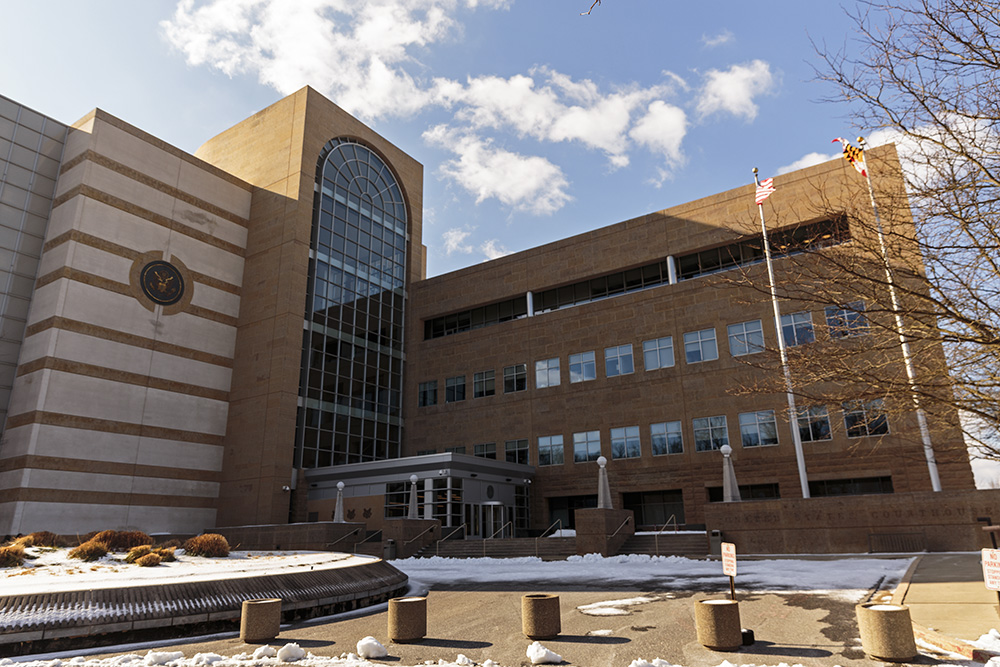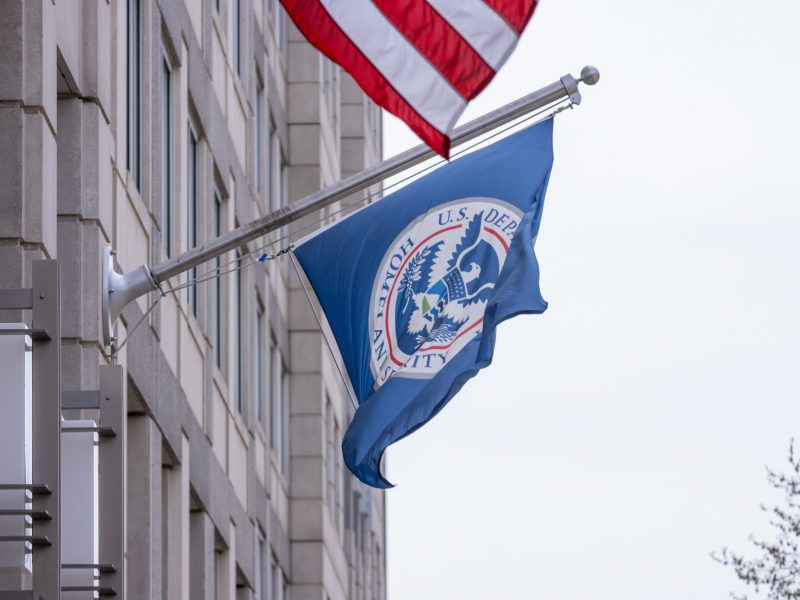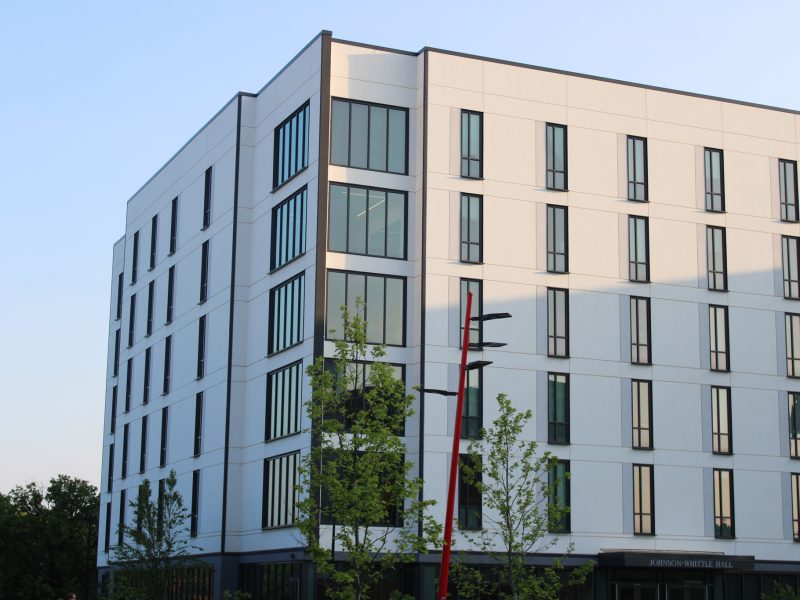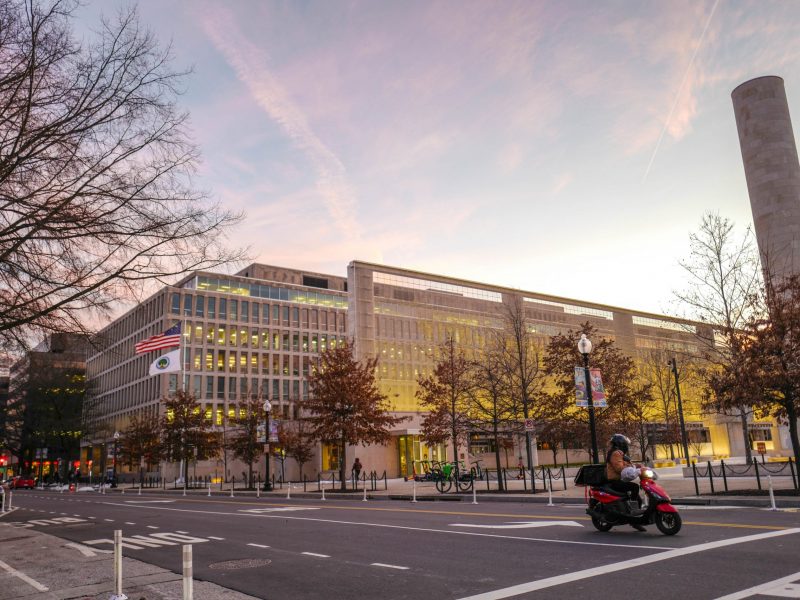President Trump’s latest travel ban faced a second roadblock Thursday, with a federal judge in Greenbelt placing a temporary halt on part of the ban.
U.S. District Court Judge Theodore D. Chuang suspended the portion of Trump’s executive order that prevents visas from being issued to nationals of six predominantly Muslim countries — Iran, Syria, Yemen, Somalia, Sudan and Libya.
In the ruling, Chuang issued a preliminary injunction of the order, which will last through a trial to determine if the ban can stand, CNN reported.
[Read More: Trump’s new travel bans eases restrictions on visa holders, Syrian refugees]
A federal judge in Hawaii implemented a restraining order against the entire ban on Wednesday.
U.S. District Judge Derrick K. Watson in Hawaii ruled that the federal government did not prove why the executive order was needed, and both Watson and Chuang used interviews from Trump and his associates in their decisions. Chuang cited a Trump interview with Anderson Cooper last year, where the now president said it was hard to separate radical Islam from Islam as a whole, and had added that, “I think Islam hates us.”
“These statements, which include explicit, direct statements of President Trump’s animus toward Muslims and intention to impose a ban on Muslims entering the United States, present a convincing case that the first executive order was issued to accomplish, as nearly as possible, President Trump’s promised Muslim ban,” Chuang wrote in his ruling.
The revised ban, signed on March 6, bars citizens from six countries from entering the U.S. for 90 days, and all refugees — including Syrian refugees — for 120 days. The ban excludes Iraq and also protects green card and visa holders from the barred countries, unlike the January version of the ban. The updated order was set to go into effect on March 16.
Sen. Chris van Hollen (D-Md.) tweeted against the ban just hours before news broke that Chuang had ordered a suspension. District 5 Rep. Steny Hoyer also tweeted Thursday morning that he was “not surprised” by the block.
“Trump’s #MuslimBan 2.0 did not improve with age,” Van Hollen tweeted. “It still violates our values and harms our security.”
Trump had not posted on social media acknowledging Maryland’s ban as of noon on Thursday.
Maryland Attorney General Brian Frosh praised the Hawaii ruling in a tweet Wednesday. On Friday, Frosh joined Washington state, Massachusetts, Minnesota, Oregon and New York in a lawsuit challenging the ban. He recently received the ability to join lawsuits through a resolution in the Maryland legislature that allows the attorney general to sue the federal government without permission from Gov. Larry Hogan.
Pleased to see the Court recognized that the President’s attempt at a do-over is still what it always was – a Muslim ban. #NoBanNoWall — Brian Frosh (@BrianFrosh) March 16, 2017
“President Trump’s second executive order is still a Muslim ban,” Frosh said in a March 10 news release. “The Administration persists in an effort to implement a policy that is inhumane and unconstitutional, but also makes us less safe, not more safe.”
In Wednesday’s ruling, Hawaii judge Derrick Watson noted the federal government did not prove the ban was needed to protect the U.S. from terrorists. The government has argued that the executive order does not target one specific religion, because the countries banned are only a small subset of more than 50 Muslim-majority countries, he wrote.
“The illogic of the Government’s contentions is palpable,” Watson wrote. “The notion that one can demonstrate animus toward any group of people only by targeting all of them at once is fundamentally flawed.”
Watson cited a Fox News interview with Stephen Miller, one of Trump’s top advisers, in which Miller said the new travel ban would have the same fundamental impact as the first one.
“These plainly-worded statements, made in the months leading up to and contemporaneous with the signing of the Executive Order, and, in many cases, made by the Executive himself, betray the Executive Order’s stated secular purpose,” Watson wrote.
The Department of Justice issued a statement on Wednesday night disagreeing with Watson’s ruling, stating that the executive order is within Trump’s rights as president to protect national security.
Trump also spoke out against the Hawaii court ruling on Wednesday night at a rally in Nashville. He said the Hawaii judge overreached in his ruling, and added that he is prepared to take the ban to the Supreme Court.
“We need this. And sometimes we need it very badly … for the security of our country,” Trump told the crowd. “This ruling makes us look weak.”



